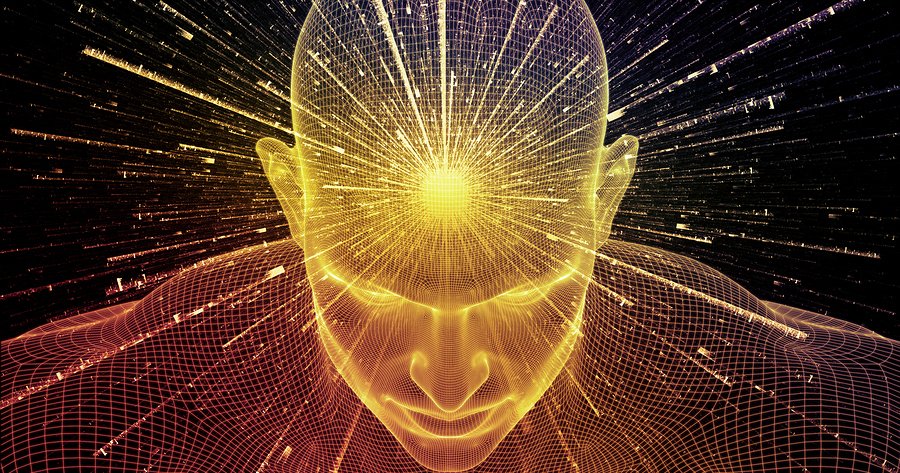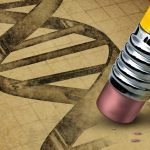While health activists around the globe protest the advance of genetically modified foods, in Chinese laboratories, scientists are playing with the possibility of genetically modifying humans. News last month showed that, after the scientific community had urged researchers to refrain from using a DNA-editing technique called CRISPR, the Chinese researchers at Sun Yat-sen University were busy using just that technique to see if they could obliterate a blood disease called beta thalassemia from human embryos.1 Cyranoski, David and Reardon, Sara. “Chinese scientists genetically modify human embryos.” 22 April 2015. Nature. 14 May 2015. http://www.nature.com/news/chinese-scientists-genetically-modify-human-embryos-1.17378?WT.mc_id=TWT_NatureNews
CRISPR uses a complex of enzymes that can be programmed to target and disrupt specific, problematic DNA gene sequences. Using this technique, scientists can splice a gene at a targeted location, use enzymes to destroy unwanted DNA sequences, and replace the problem sequence with healthy DNA.2 “Re-engineering Human Embryos.” 28 April 2015. Tom Ashbrook. WBUR. 14 May 2015. http://onpoint.wbur.org/2015/04/28/human-embryo-genetic-engineering-china The approach affects all the cells in a human, so that every cell now carries the new, altered (theoretically disease free) DNA, which then gets passed on to future generations.
In the case of the CRISPR study, the scientists started with 86 defective single-cell embryos that they obtained from a local fertility clinic. They injected the single cells with the CRISPR complex, intending to find out if they could target the defect and correct it. After 48 hours, the embryos had grown to eight-cell organisms, and at that point, 71 of the original 86 embryos had survived. Of those, only seven contained the replacement genetic material at all. In the others, the genetic alterations that occurred were off-target, causing unintended mutations in the wrong parts of the genome. In other words, the experiment ended in misfire, causing changes that could have triggered other diseases. The seven “successful” embryos had a mix of both replacement DNA and original, damaged DNA, meaning the intended genetic changes didn’t fully take root even in those embryos.
The researchers concluded that their entire effort was premature. They were concerned that there probably were even more unsuccessful mutations than they had detected since they only studied one section of the genome.3 Colata, Gina. “Chinese Scientists Edit Genes of Human Embryos, Raising Concerns.” 23 April 2015. New York Times. 14 May 2015. http://www.nytimes.com/2015/04/24/health/chinese-scientists-edit-genes-of-human-embryos-raising-concerns.html Study director Jiun Ju Huang said, “If you want to do it [genetic modification] in normal embryos, you need to be close to 100% [in other words, all 86 fetuses would have accepted the replacement DNA without a hitch]. That’s why we stopped.”
Other experts concurred that the technique isn’t ready for prime time. “This is an unsafe procedure and should not be practiced at this time, and perhaps never,” said Dr. George Q. Daley at Harvard University. His colleague, Dr. David Baltimore, a Nobel laureate, said, “It shows how immature the science is…We have learned a lot from their attempts, mainly about what can go wrong.”
The big point, though, is that the experiments on altering fetuses took place at all, and the implications are mind-boggling and controversial. In the best of all worlds, the technique and others like it could be used to eradicate genetically based diseases and would be a boon to human health. In the worst case scenario, though, it’s the stuff of Gattacan nightmares.4 http://www.youtube.com/watch?v=ZppWok6SX88 Once you can alter one strand of DNA, you can alter others, as well. Many fear that pursuing this work opens the door to the possibility of creating humans in labs and government sponsored eugenics, and the alarms have been sounded.
Meanwhile, Dr. Huang certainly doesn’t intend to stop trying to perfect his methods, despite his admission that such experiments are premature, and experts in China say that at least four other groups are pursuing the same type of research. In fact, Dr. Huang already is looking at ways to correct the misfires. One option he’s exploring is to alter CRISPR enzymes so they find their way to the intended spot more easily; another is to shorten the lifetime of the enzymes so they shut down before mutations can occur.
In an article in Nature magazine, author Edward Lanphier writes, “As that work [of exploring CRISPR applications] goes on, if one, five, 12, 100 labs are doing it, the process could get effective. That is what we want to slow down until we have an opportunity to discuss whether it should be done.”
And again, that’s the debate that rages: should it be done? Many fear that humans will take gene modification too far. How many science fiction thrillers paint pictures of futures where parents go to stores to choose their babies, electing the designer traits they prefer? Already in China, researchers have put out a call to locate subjects who have IQs higher than 145. They’re looking for the genius gene. Once that gene is identified, chances are good that eventually, someone in some lab somewhere will attempt to alter fetal DNA to create a super-baby. What are the implications if China or some other nation develops super-babies, while the rest of the world debates whether GMO babies should be allowed? And how would super-babies compete with artificial-intelligence creations? Who would win that struggle, and what would happen to the rest of us? Now, there’s a science fiction movie plot: Terminator VS Lucy!5 http://www.youtube.com/watch?v=OwaSJtSW1xQ
The concerns being voiced are ethical, moral, religious, and scientific, because the technology is new and the potential for error great. Many believe it’s wrong to play with human life, even in embryo form. Dr. Lanphier speaks for many when he says, “In our view, genome editing in human embryos using current technologies could have unpredictable effects on future generations. This makes it dangerous and ethically unacceptable.”
But on the other hand, there are those who want to continue exploring genetic engineering involving humans, and who, in fact, think it’s unethical to hold back.6 Gallagher, Dr. James. “Embryo engineering a moral duty, says top scientist.” 13 May 2015. BBC News. 14 May 2015. http://www.bbc.com/news/uk-politics-32633510
“My view is this is such a wonderful opportunity to remove horrible diseases that it would be unethical not to explore it,” says cloning pioneer Dr. Perry from the University of Bath. “I think it is a sin of omission, if you have a method where you can prevent someone suffering and you don’t take that opportunity then it is wrong, it is unethical.”
The fact is that Pandora’s box already is wide open, to the point that scientists are calling for a summit in Asilomar, California, to discuss the possibility of engineering human babies. 7 Vogel, Gretchen. “Embryo engineering alarm. 20 March 2015. Science. 14 May 2015. http://www.sciencemag.org/content/347/6228/1301.summary For perspective, though, perhaps we need to remember that it’s not only our worst nightmares that emerged from Pandora’s box, but also Hope?8 NS Gill. “Pandora’s Box.” about education. (Accessed 17 May 2015.) http://ancienthistory.about.com/od/grecoromanmyth1/a/050410Pandora_and_her_box_or_pithos.htm The future will tell which of those two possibilities we get from genetically modified humans.
References
| ↑1 | Cyranoski, David and Reardon, Sara. “Chinese scientists genetically modify human embryos.” 22 April 2015. Nature. 14 May 2015. http://www.nature.com/news/chinese-scientists-genetically-modify-human-embryos-1.17378?WT.mc_id=TWT_NatureNews |
|---|---|
| ↑2 | “Re-engineering Human Embryos.” 28 April 2015. Tom Ashbrook. WBUR. 14 May 2015. http://onpoint.wbur.org/2015/04/28/human-embryo-genetic-engineering-china |
| ↑3 | Colata, Gina. “Chinese Scientists Edit Genes of Human Embryos, Raising Concerns.” 23 April 2015. New York Times. 14 May 2015. http://www.nytimes.com/2015/04/24/health/chinese-scientists-edit-genes-of-human-embryos-raising-concerns.html |
| ↑4 | http://www.youtube.com/watch?v=ZppWok6SX88 |
| ↑5 | http://www.youtube.com/watch?v=OwaSJtSW1xQ |
| ↑6 | Gallagher, Dr. James. “Embryo engineering a moral duty, says top scientist.” 13 May 2015. BBC News. 14 May 2015. http://www.bbc.com/news/uk-politics-32633510 |
| ↑7 | Vogel, Gretchen. “Embryo engineering alarm. 20 March 2015. Science. 14 May 2015. http://www.sciencemag.org/content/347/6228/1301.summary |
| ↑8 | NS Gill. “Pandora’s Box.” about education. (Accessed 17 May 2015.) http://ancienthistory.about.com/od/grecoromanmyth1/a/050410Pandora_and_her_box_or_pithos.htm |











